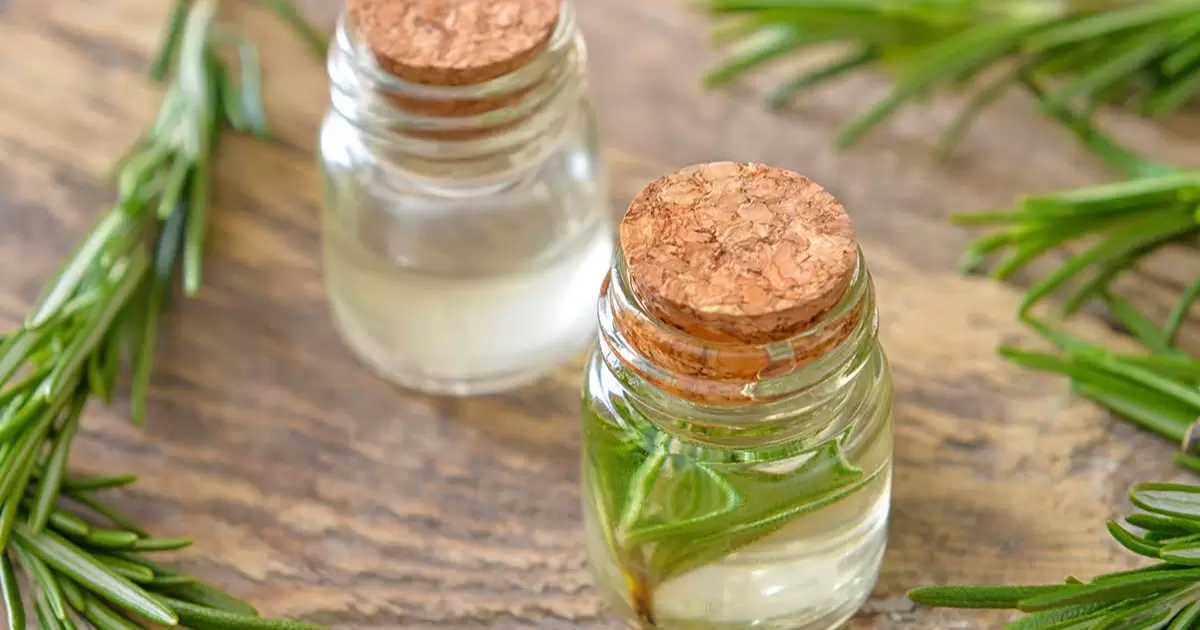Rosemary water has gained immense popularity in recent years for its potential benefits for hair growth and overall hair health. This natural remedy has been used for centuries in traditional medicine, and now it’s making a comeback as more people seek out natural solutions for their hair care needs. In this comprehensive guide, we’ll dive into the reasons why you should consider trying rosemary water, the ingredients you’ll need, and a step-by-step process for making your own at home.
Reasons to Try Rosemary Water
Before we get into the nitty-gritty of making rosemary water, let’s explore the potential benefits that have made this natural concoction so popular:
- Promotes Hair Growth: Rosemary is believed to have properties that stimulate hair follicles and promote hair growth. It contains several essential nutrients like vitamin B6, folate, and iron, which are essential for healthy hair growth.
- Strengthens Hair: The antioxidants present in rosemary water can help strengthen hair strands, reducing breakage and preventing hair loss.
- Improves Scalp Health: Rosemary has anti-inflammatory and antimicrobial properties that can help soothe an irritated scalp and combat dandruff.
- Adds Shine: The natural oils in rosemary can help add luster and shine to dull, lifeless hair.
- Natural and Safe: Unlike many commercial hair products, rosemary water is a natural and safe alternative, free from harsh chemicals that can potentially damage your hair and scalp.
Ingredients
To make your own rosemary water, you’ll need just a few simple ingredients:
- Fresh rosemary sprigs or dried rosemary leaves
- Distilled water or filtered water
- Essential oils (optional, for added benefits and fragrance)
It’s important to note that while you can use either fresh or dried rosemary, fresh rosemary is often preferred as it tends to be more potent and aromatic.
How to Make Rosemary Water
Here’s a simple step-by-step guide to making your own rosemary water at home:
- Gather Your Ingredients: Collect the required amount of fresh rosemary sprigs or dried rosemary leaves, along with the necessary water.
- Prepare the Rosemary: If using fresh rosemary, gently rinse the sprigs under cool water to remove any dirt or debris. If using dried rosemary leaves, there’s no need to rinse.
- Boil the Water: Bring the desired amount of water to a boil in a pot or saucepan.
- Add the Rosemary: Once the water is boiling, remove the pot from heat and add the rosemary. For best results, use about 1 cup of fresh rosemary sprigs or 1/4 cup of dried rosemary leaves per 2 cups of water.
- Steep the Rosemary: Allow the rosemary to steep in the hot water for at least 30 minutes to an hour. The longer you steep, the stronger the infusion will be.
- Strain the Rosemary Water: After steeping, use a fine-mesh strainer to separate the rosemary from the water. Gently press the rosemary to extract as much liquid as possible.
- Add Essential Oils (Optional): If desired, you can add a few drops of essential oils like lavender, peppermint, or cedarwood to the rosemary water for added benefits and a pleasant scent.
- Store the Rosemary Water: Transfer the rosemary water to a clean, airtight container and store it in the refrigerator for up to a week.
Other ideas you might like:
- Try adding a few slices of fresh lemon or lime to the rosemary water for an extra burst of fragrance and potential benefits.
- Experiment with different ratios of rosemary to water to find the strength that works best for your hair and scalp.
- Consider mixing the rosemary water with other nourishing ingredients like honey, aloe vera, or apple cider vinegar for a supercharged hair treatment.
Using Rosemary Water
Now that you’ve made your homemade rosemary water, it’s time to incorporate it into your hair care routine. Here are some suggestions for using rosemary water:
Can I spray rosemary water on my hair every day?
While rosemary water is generally considered safe for daily use, it’s essential to pay attention to your hair and scalp’s reaction. If you notice any irritation, dryness, or adverse effects, reduce the frequency of use or discontinue using it altogether.
How do you make rosemary hair growth spray?
To make a rosemary hair growth spray, you’ll need to follow the same steps for making rosemary water, but you may want to consider adding other hair-friendly ingredients like:
- Essential oils like peppermint, cedarwood, or rosemary essential oil
- Apple cider vinegar
- Aloe vera gel
- Coconut oil
Mix these ingredients with the rosemary water and store the mixture in a spray bottle for easy application.
How long does homemade rosemary water last?
Homemade rosemary water can last up to a week when stored in an airtight container in the refrigerator. However, it’s best to use it within a few days for maximum potency and freshness.
How often should I use rosemary water for hair growth?
There’s no definitive guideline for how often to use rosemary water for hair growth, as individual hair and scalp types may respond differently. However, many experts recommend using it 2-3 times per week as part of your regular hair care routine.
Can I boil rosemary leaves and drink?
Yes, you can boil rosemary leaves and drink the resulting tea. Rosemary tea is a popular beverage with potential health benefits, such as improving digestion, boosting immunity, and reducing inflammation.
To make rosemary tea, simply follow the same steps as making rosemary water, but use a smaller amount of water (1 cup per 1 teaspoon of dried rosemary or a few fresh sprigs). Allow the rosemary to steep for 5-10 minutes before straining and drinking.
Is it possible to make rosemary water from dried rosemary leaves?
Absolutely! While fresh rosemary is often preferred for its potency and aroma, dried rosemary leaves can also be used to make rosemary water. Simply follow the same steps, but use a smaller amount of dried rosemary leaves (about 1/4 cup per 2 cups of water) and adjust the steeping time as needed.
Remember, the key to making effective rosemary water is to use high-quality rosemary, whether fresh or dried, and to steep it for a sufficient amount of time to extract all the beneficial compounds.
Conclusion
Incorporating rosemary water into your hair care routine can be a simple and effective way to promote healthy hair growth, strengthen strands, and improve overall scalp health. With its natural properties and easy preparation process, rosemary water offers a safe and affordable alternative to commercial hair products laden with harsh chemicals.
Whether you choose to use it as a hair rinse, leave-in conditioner, pre-shampoo treatment, or daily refresher spray, this versatile concoction can be tailored to suit your specific hair needs. So why not give it a try and experience the potential benefits of this age-old remedy for yourself? With a little experimentation and patience, you may just find your new go-to solution for luscious, healthy locks.











